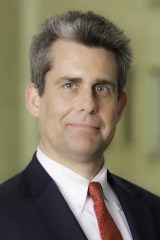Fifty years ago today, the 24th Amendment, prohibiting the use of poll taxes as voting qualifications in federal elections, became part of the U.S. Constitution. Poll taxes were among the devices used by Southern states to restrict African Americans (as well as poor whites, Native Americans and other marginalized populations) from voting. The taxes had been ubiquitous across the old Confederacy earlier in the 20th century, but by 1964 only five states — Alabama, Arkansas, Mississippi, Texas and Virginia — retained them.
The nominal amount of the taxes wasn’t very much, then or now. Alabama, Texas and Virginia set theirs at $1.50 per year, or $11.27 in today’s dollars; Arkansas had the lowest tax, $1 (or $7.51 today), while Mississippi’s was highest at $2 ($15.03 today). But the taxes were more onerous than they might appear. In Virginia, Alabama and Mississippi the taxes were cumulative, meaning a person seeking to vote had to pay the taxes for two or three years before they were eligible to register. Often only property owners were billed for the taxes, and the due dates were several months before the election. Virginia, Mississippi and Texas allowed cities and counties to impose local poll taxes on top of the state charge. And in some jurisdictions taxes had to be paid in person at the sheriff’s office, an intimidating prospect for many.
[B]
The 24th Amendment didn’t, however, mark the end of poll taxes in the United States. While it ended taxes as factors in federal elections, poll taxes remained in place for state and local elections. Arkansas effectively repealed its state poll tax in November 1964; it wasn’t till 1966 that the taxes in the four remaining states were struck down in a series of federal court decisions.
